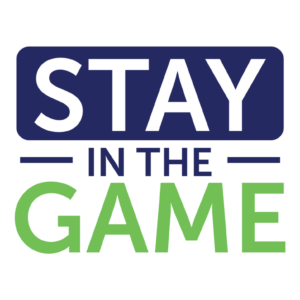
Hiring and Recruitment Trends: Proactively Engaging Candidates Early in the Hiring Process
Amid the global talent shortage, companies are actively implementing recruitment methodologies usually reserved for executive leadership. Though proactive candidate engagement is nothing new, it’s rarely used to fill mid- or entry-level positions and is more often seen at the executive level.
In an effort to transform the recruitment landscape, HR professionals today are thinking outside the box and applying proactive hiring methodologies to affect more reliable results at every organizational level.
Learn the secrets of how proactive engagement and hiring strategies quickly become the gold standard in HR and how the practice adds value to a company’s growth and success.
We’ll also outline suggestions to help companies engage the power of proactive hiring through outsourcing, helping them achieve results faster and more reliably through partnership.
What is Proactive Hiring?
When companies need to fill open positions or augment their staff, most will dust off the job description, create a posting, launch it on a job board, and hope for the best. However, HR is living in challenging times where the employee experience matters—a lot—and it begins even before a candidate’s first direct engagement.
Proactively engaging candidates early in the recruitment journey helps organizations improve the experience and is a proven strategy to help attract a higher caliber of talent. While there are many layers to proactive hiring, one of the principal tenets involves attracting and engaging potential new hires before you actually need to fill the position. Proactive hiring gets ahead of staffing needs, filling the talent pipeline with candidates who will be ready and eager to act on an opportunity when it arises.
How Proactive Hiring Works
Proactive recruitment and hiring is a multi-stage process that resembles a sales funnel. There are five key steps to the process:
1. Drive awareness
Your employer brand is critical in the awareness phase. Your online reputation, such as reviews on Glassdoor, your social presence, and career pages on your website, reveals a lot about what it’s like to work for your company. Before reaching out to potential candidates, consider what these elements say about your organization. Diversity, equity, and inclusion are critical to today’s job seekers, but that’s just one example. Working with a professional recruiter or HR professional can help you improve your employee-facing image.
Take a cue from sales and marketing and build a few “ideal customer personas.” These hypothetical profiles imagine the type of person or demographic you want to attract and help you craft language and campaigns that speak directly to them. With detailed personas in hand, you’ll then know where to look for candidates, whether on social media, segmented databases, at events or wherever you predict they are likely to frequent, on or offline.
2. Engagement
Once you’ve gotten your potential candidate’s attention, you must engage with them. It could be as simple as responding to their comments on your social pages. Or, it could come as an introductory message that tells them about your organization and asks them what their ideal job looks like.
Once you engage, it’s critical to maintain that line of communication. Holding their interest is essential at this stage. You are still building that relationship and must ensure they feel seen and valued.
3. Nuturing
Nurturing potential new hires can be approached in the same way you would nurture a sales prospect. Keeping their interest, answering questions, providing content and information, and sharing insights that might be of value to them are all excellent ways to strengthen ties.
Connecting with these individuals on their preferred platforms is best; in other words, if you send them an email and they don’t respond, but you notice they are active on LinkedIn, message them on LinkedIn and don’t bother with the emails. Engage with content they share if it seems appropriate and continues to build a friendly rapport.
4. Action/conversion
After a period of interaction, you’ll better understand which candidates have the greatest potential to convert. Once you’ve identified these individuals, you can change your content and communication strategy to be more specific. You’ll likely know more about them and what they’re looking for in an employer and be better able to respond to those unspoken motivations.
The content you share might become more specific, and you can start sending them links to apply to open positions as they become available, accompanied by thoughtful messaging that speaks directly to the candidate, their skills, and experience (if known). Done right, their conversion will be a seamless process as they are already well-acquainted with you and the brand.
5. Build Loyalty
Once a candidate has applied, and the offer has been given, the onboarding process begins. In a proactive recruiting environment, onboarding starts when the offer is accepted and continues for the first 100 days of employment.
During this time, your processes and policies should continue to nurture and support the candidate’s journey. Consistency is key, as is providing them with a trusted contact who can help them settle in. The more comfortable and supportive the onboarding process is, the more they feel valued. That, over and above just about anything else you can do, will help build loyalty, and job satisfaction, and ensure a long and fruitful engagement with your company.
Outsourcing Your Proactive Hiring Process
Having a clear and concise process is just the first step. Putting it into action is another thing altogether. If your HR team is already stretched too thin with the day-to-day, consider outsourcing to an outside organization. Outsourcing provides you with skilled expertise that helps you execute a proactive hiring process and achieve your goals faster and more reliably than would be possible otherwise.
Choose an outside organization that is actively engaging talent and understands your business model and goals for the future. Be sure they have a diverse and talented pool of candidates ready to hit the ground running and will work with you to align their efforts with your needs.
The ideal outsourced partnership will be mutually beneficial and provide you with a ready pipeline of qualified, pre-screened workers at every career stage.
Stay In The Game has developed a community of women at multiple stages of their career journey, from those “actively seeking positions,” “staying at home with my kids right now,” to “curious about future opportunities.” We engage these individuals through career education tools like resume tips and live training designed to enrich and empower their career paths. We strive to make the workplace more equitable and growth-minded through empowerment, partnership, and a mutual desire to improve the employment landscape for employees and employers alike.
We invite employers to tap into our warm database to proactively engage with future candidates, broaden their talent pool, and discover valuable resources to help their companies grow and thrive.
Stay In The Game provides opportunities for competent, educated individuals who have been out of the workforce. Now, they can get back in the game and put their talents to work. We offer jobs, training and community support. For more information, please visit our website https://stayinthegame.net/ or contact us at info@stayinthegame.net.

